Compare
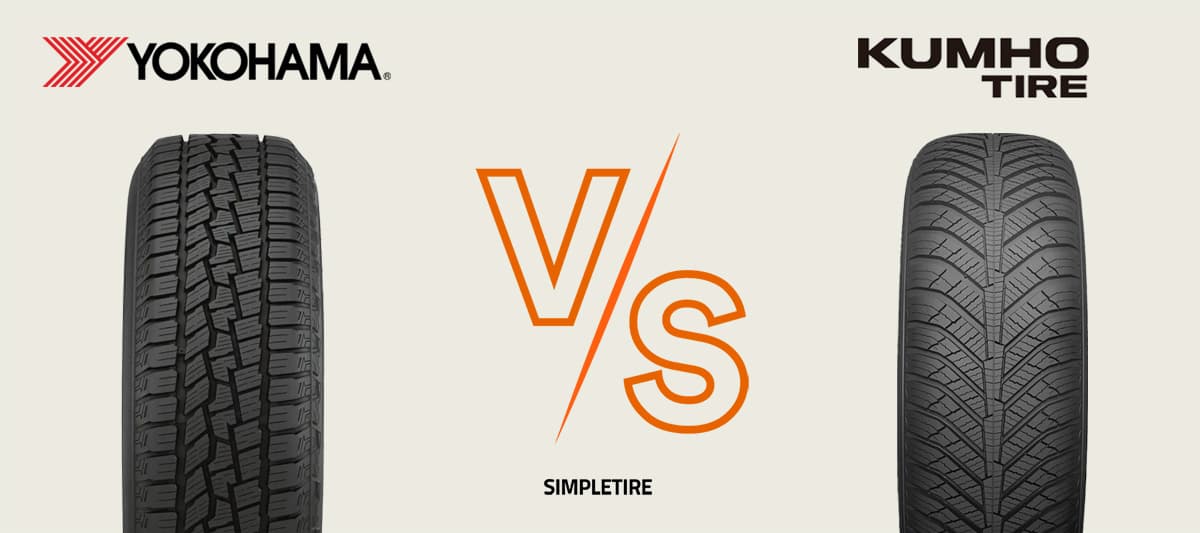
All-weather tires, which fall between winter and all-season tires, are relatively new to the tire market. Along with many other noteworthy features, they have increased winter traction and more aggressive tread patterns because of sipe network optimization and updated tread designs. The Yokohama Geolandar CV4S and Kumho Solus HA31 are two tires in this category that we will be analyzing. Both tires are fully capable of operating in three to five inches of snow.
Yokohama has a stronger and more resilient construction for longer tread life and durability than the Kumho. It has a higher tread depth as compared to the Kumho, but both are Three Peak Mountain Snowflake certified for severe winter service. Here, we would like to point out that both tires have been scored using our proprietary tire rating system, SimpleScore. We will be using SimpleScore to give you an accurate idea of the two tires through this Geolandar CV4S vs Solus HA31 tires comparison.
Yokohama Geolandar CV4S tires
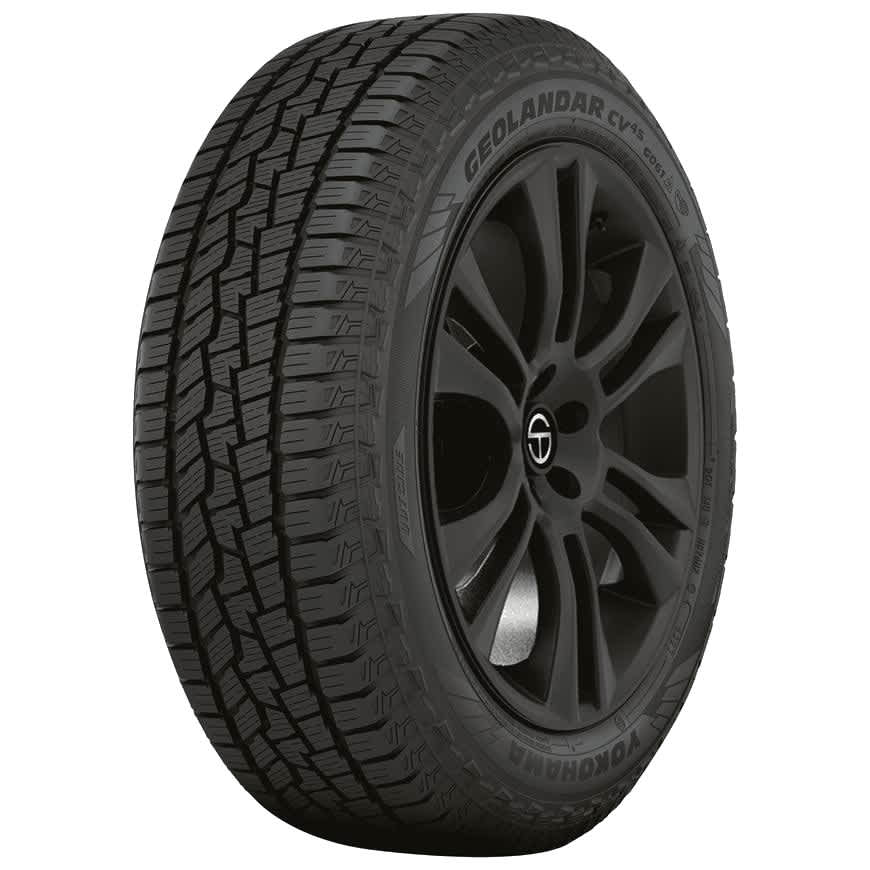
Yokohama is a Japanese tire company known for selling tires across different categories, more than what Kumho offers in the US. The Geolandar CV4S is also more affordable as compared to the Solus HA31, as you will see later during this comparison. These tires have been specially designed for CUVs and SUVs, displaying a long-lasting and strong structure that enhances their tread life.
You can look forward to a smooth and quiet ride here, along with better performance and flexibility. The high tread depth and asymmetric tread design make for great grip, but the real difference will only be seen in the SimpleScore ratings. Buyers of the Geolandar CV4S and Solus HA31 get the same limited manufacturer warranty, resulting in an average SimpleScore of 8.7.
Kumho Solus HA31 tires
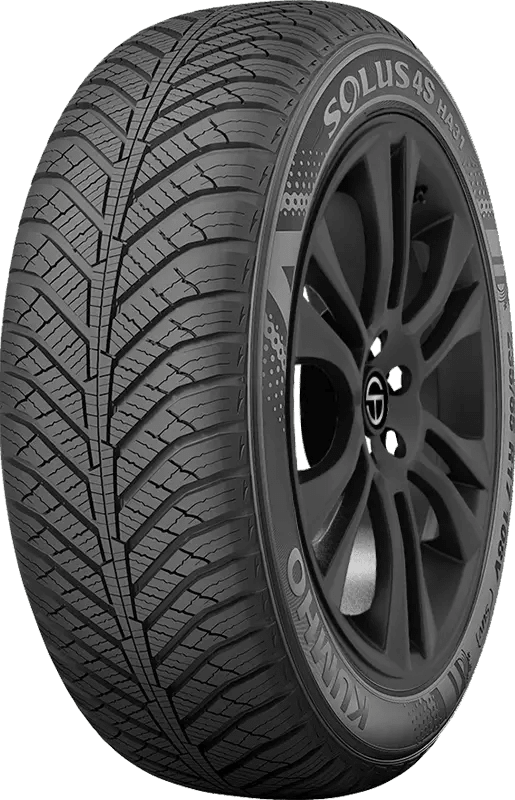
Kumho is a South Korean tire manufacturer that is known for making value-oriented and performance-based tires. Kumho Solus HA31 has been specifically designed for fitting compact and mid-sized vehicles. In terms of wet performance, this tire is almost the same as the Kumho Solus HA32. The limited manufacturer tread life warranty on this tire is the same as the Geolandar CV4S and both receive Three Peak Mountain Snowflake certifications for severe winter service. While interlocking tread blocks provide great dry performance, a rigid center rib ensures high stability. A directional tread pattern is available on this tire that is suitable enough for an average SimpleScore of 8.0.
Yokohama Geolandar CV4S vs Kumho Solus HA31 tires on traction
The high tread depths and the Three Peak Mountain Snowflake symbols on both tires show that they can handle moderate to heavy snow. The Geolandar CV4S has an asymmetric tread pattern instead of a symmetric tread pattern to make sure it has a good mix of grip and performance. There are several biting edges on three 3D sipes that change shape as the tread wears, giving it grip in all kinds of weather. Our data shows that this Yokohama is suitable for a traction score of 8.5.
There’s a directional tread pattern on the Kumho Solus HA31 and the S-SRB compound is responsible for great winter traction. Tread depth is fairly high for an all-weather tire and the sipes also help boost grip. A unique arrowhead design channel and wide lateral grooves remove water to minimize hydroplaning and enhance snow and wet grip, resulting in an average traction score of 8.7.
ADVANTAGE: Kumho Solus HA31
Yokohama Geolandar CV4S vs Kumho Solus HA31 tires on handling
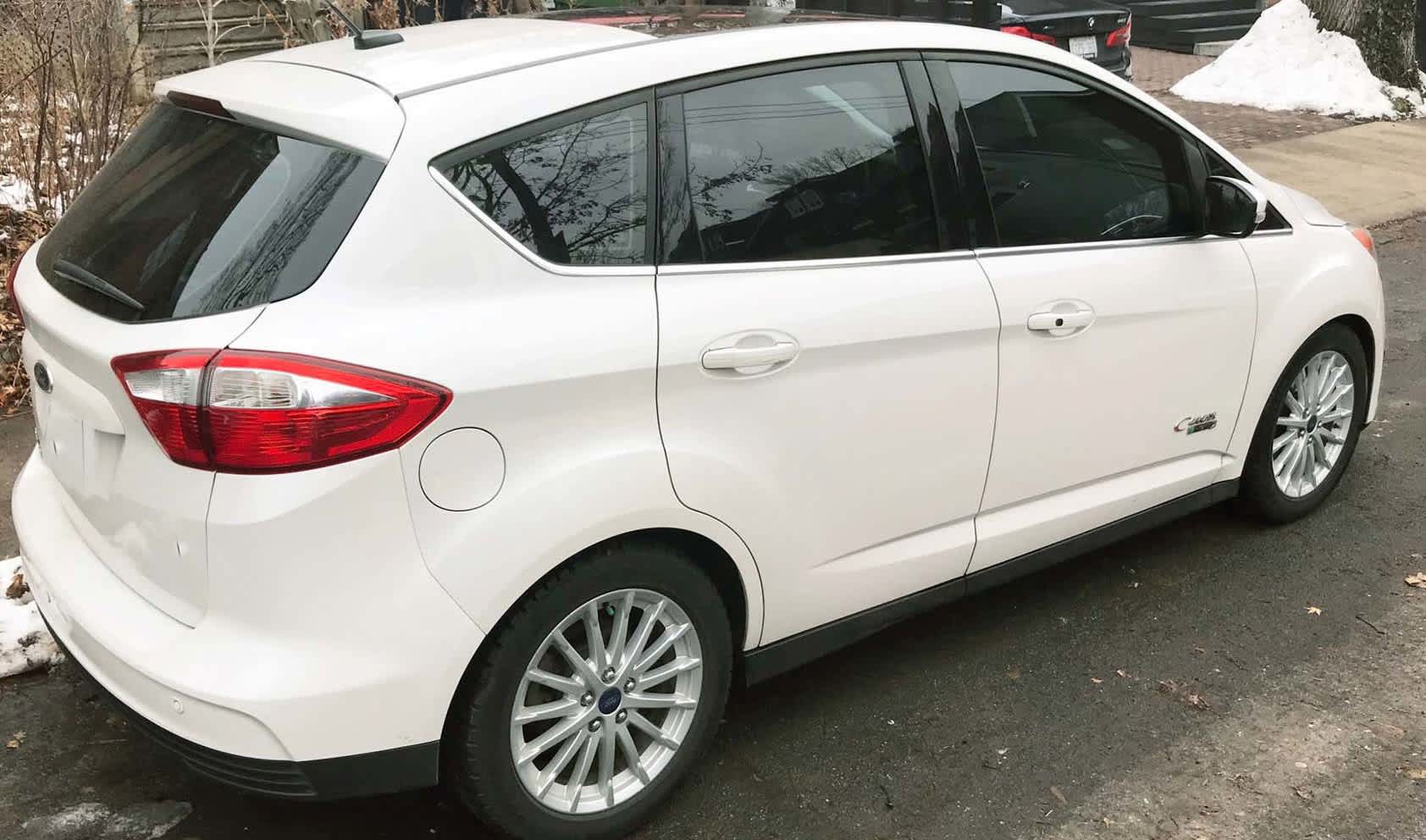
To make the Geolandar CV4S perform better, a new polymer blend and an uneven tread design have been used. This tire is known for how well it works in the rain, making hydroplaning less likely. A touch area that has been optimized gives you the best of both comfort and performance in all weather. Based on our road tests, the Geolandar CV4S had a great average handling score of 8.6.
A rigid center rib and an optimized center rib that is part of a unique arrowhead pattern increase stability at high speeds and improve steering response on the Kumho Solus HA31. There are interlocking tread blocks here for better dry performance and the directional tread pattern also boosts handling. We found the Solus HA31 suitable for an average handling score of 8.7.
ADVANTAGE: Kumho Solus HA31
Yokohama Geolandar CV4S vs Kumho Solus HA31 tires on longevity
Limited manufacturer warranties are the same on both tires, as both manufacturers provide 60,000 miles of stress-free driving. While the Yokohama sports triple 3D sipes, there are unique sipes visible on the Kumho, both of which help prevent uneven wear. A new polymer blend and improved micro-silica dispersion, however, enhance rolling resistance for long-lasting wear. The aggressive appearance and improved protection provided by the CV4S's daring sidewall design are useful in every operating environment. All things considered, the Geolandar CV4S qualifies for a 9.0 on the SimpleScore for average longevity.
A directional tread pattern is useful for longer life on the Kumho Solus HA31, as is the tread compound. The limited manufacturer tread life warranty is the same as the Yokohama and these tires are suitable for an average longevity SimpleScore of 7.0.
ADVANTAGE: Yokohama Geolandar CV4S
When to use each
You can use the Geolandar CV4S and the Solus HA31 year-round since they are both all-weather tires. Unlike all-season tires, these are designed to deliver enough traction and performance in moderate to severe winter weather. While comparing the two, we noticed that the Kumho was clearly superior to Yokohama across almost all the parameters.
All-weather tires such as the ones here can be used in 3-5 inches of snow, but if you need tires for driving in areas that receive a lot more snow and ice or when the roads are totally covered in ice, winter tires are your best bet.
Which one should you choose?
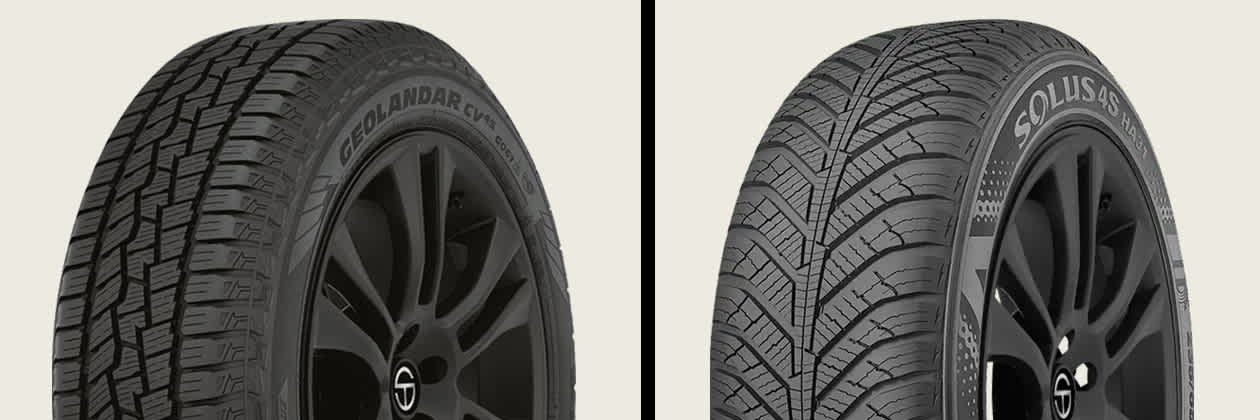
There are a few similarities between the two tires when comparing the Yokohama Geolandar CV4S with the Kumho Solus HA31. While the tread depth of one is higher than the other by a tiny margin, the limited manufacturer tread life warranty and the Three Peak Mountain Snowflake certification are exactly the same. Yokohama may seem to be the superior choice at the outset, but Kumho is ahead of it in two out of three parameters. It is at this point that we would like to bring forward the starting prices of the two tires.
SimpleTire’s price on the Yokohama Geolandar CV4S begins from a lower $167.99 per tire ($671.96 for 4). Compared to it, the Kumho Solus HA31 is priced at $198.96 per tire ($795.84 for 4) onwards.
Here are the major reasons to purchase the Yokohama Geolandar CV4S:
- You are searching for a cheaper tire
- You want higher longevity
- You want the tire with stronger construction
On the other hand, you can buy the Kumho Solus HA31 for the following reasons:
- You need better traction
- You are keen on better handling
- You want better winter grip
Still not sure which tire to buy? Fortunately, SimpleTire is here to help as our helpful agents will be more than happy to assist you in selecting the right tire for your ride and budget.
Ready to find the perfect tires?
Search By